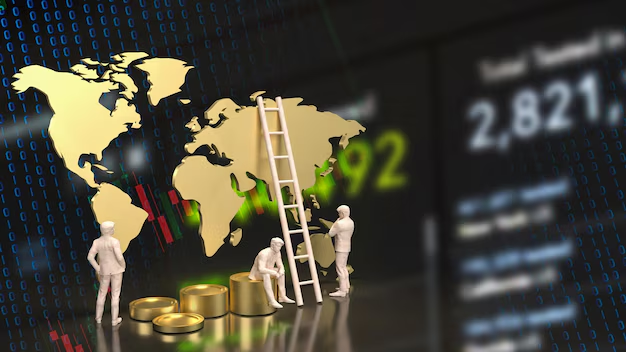In today’s interconnected world, global events play a pivotal role in shaping financial markets. From geopolitical tensions to natural disasters, these events often ripple through economies, influencing investments, trade, and currency values. Understanding the interplay between global events and finance is crucial for businesses, investors, and policymakers to make informed decisions.
Understanding Global Events and Their Scope
Global events encompass a wide range of occurrences, including:
- Geopolitical Conflicts: Wars, trade disputes, and diplomatic tensions.
- Natural Disasters: Earthquakes, floods, and hurricanes.
- Pandemics: Health crises like COVID-19.
- Technological Advances: Breakthroughs or disruptions in technology.
- Environmental Changes: Climate policies and extreme weather events.
How Global Events Impact Financial Markets
1. Stock Markets
Global events often create volatility in stock markets. For instance, during the COVID-19 pandemic, global markets saw unprecedented crashes and recoveries as uncertainty loomed over economic activities.
2. Currency Fluctuations
Geopolitical tensions or natural disasters can lead to currency depreciation or appreciation. For example, the Russian-Ukrainian conflict significantly impacted the ruble and euro exchange rates.
3. Commodity Prices
Events affecting supply chains, such as oil production disruptions, can cause commodity prices to soar or plummet. The Russia-Ukraine conflict spiked global crude oil and wheat prices due to trade interruptions.
4. Investment Patterns
Global events reshape risk perception. Safe-haven assets like gold or government bonds often gain prominence during crises, while riskier assets face sell-offs.
5. Corporate Performance
Supply chain disruptions, changing consumer demand, or higher operational costs due to global events can affect corporate profitability and stock valuations.
Case Studies

COVID-19 Pandemic (2020)
- Impact: A global health crisis that triggered lockdowns, unemployment spikes, and economic recessions worldwide.
- Financial Outcome: Central banks introduced stimulus measures, and equity markets rebounded dramatically by late 2020.
2008 Global Financial Crisis
- Impact: Originating in the U.S., the housing market crash led to a global recession.
- Financial Outcome: Governments introduced strict regulations and bailouts to stabilize the financial systems.
Ukraine-Russia Conflict (2022)
- Impact: It disrupted global trade, particularly in energy and agricultural commodities.
- Financial Outcome: Inflation surged globally, prompting central banks to tighten monetary policies.
The Role of Technology in Navigating Financial Impact
Technological advancements have transformed how financial markets respond to global events. With real-time data analytics, predictive models, and AI tools, investors can now forecast potential impacts more accurately. These innovations enable faster decision-making during crises.
Steps for Mitigating Financial Risks
- Diversification: Spread investments across sectors and geographies to minimize risks.
- Hedging: Use financial instruments like options or futures to protect against adverse movements.
- Staying Informed: Keep track of global news to anticipate potential impacts.
- Emergency Funds: Maintain liquidity to weather financial storms.
Conclusion
Global events are inevitable and significantly influence financial systems worldwide. While they create risks, they also present opportunities for those who are well-prepared and informed. By adopting strategic financial planning and leveraging technology, stakeholders can mitigate risks and capitalize on market shifts caused by global developments.
FAQs
1. How do geopolitical tensions impact financial markets?
Geopolitical tensions often lead to market volatility, currency fluctuations, and changes in commodity prices due to uncertainty.
2. Can natural disasters cause long-term financial disruptions?
Yes, depending on the scale, natural disasters can have long-term economic impacts, especially on infrastructure and supply chains.
3. What role does technology play during financial crises?
Technology enables real-time data analysis and predictive modeling, helping stakeholders make informed decisions during crises.
4. Why do investors turn to safe-haven assets during crises?
Safe-haven assets like gold are less volatile and provide stability during uncertain times.
5. How does inflation link to global events?
Disruptions in supply chains or resource availability during global events often lead to inflationary pressures.


